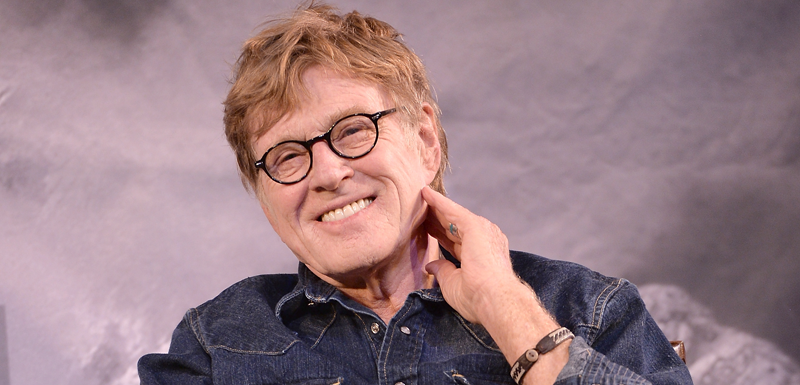Nate von Zumwalt
The notions of change and independence made for prominent themes at yesterday’s Day One Press Conference, the perennial kick-off to the Sundance Film Festival that saw Sundance Institute President and Founder Robert Redford, Festival Director John Cooper, and Executive Director Keri Putnam setting the scene for the 10 days to come.
For his part, Redford offered an assured perspective on the value of both themes, and particularly the necessity to embrace change and preserve independence in the arts. “I believe change is inevitable,” he said. “And I think we can see that there are some people who go with change; there are others that don’t, because they’re afraid of change. I want us to ride with it and use it to our advantage.”

It was a salient point from Sundance’s leading man, who seemed less inclined to offer a sweeping retrospective on the Institute and instead content to point to the organizations steadfast vision and its “framework of independence.” Referring specifically to the recent Charlie Hedbo attacks in Paris and the perception that freedom of expression is under siege, Redford’s position was unequivocal and direct.
“Clearly I think there is an attack on freedom of expression in many different places – it’s not exclusive to Paris,” Redford said. “We believe in diversity, and freedom of expression is very much fundamental to us. You see a lot of films here that are going to upset other people, and that’s OK. It’s diversity. It’s showing what there is out there. So, I think freedom of expression seems to be in danger in a lot of areas. But as far as we’re concerned, we will do everything in our power to keep it alive.”
John Cooper, perhaps the best resource for an overarching take on this year’s slate of films, noted that this year’s program is defined by an “attention to intensity” in both documentary and narrative films. “We’re seeing that grow into our other programs like the virtual reality at New Frontier,” he said. The Festival Director also sounded especially keen on this year’s nonfiction sections. “What’s grown in documentary is the use of story and the use of character. It’s not just information that needs to get out there, it’s how you engage an audience.”
The seemingly unavoidable yet always pertinent topic of distribution dominated a segment of Keri Putnam’s remarks, who took a moment to address some recent growth among the Institute’s #ArtistServices program. “It’s about providing opportunities to filmmakers who want to be entrepreneurial with how they release their films,” she said. “We have a set of tools and partnerships that enable filmmakers to come through us as a not-for-profit and get their film widely distributed digitally while keeping the lion’s share of their revenue.”
Putnam also touched on the abundantly obvious challenge of diversity facing Hollywood, and acknowledged a disconnect between the independent and mainstream industries. “The pipeline of young talent interested in telling stories is there, but somewhere along the way they fall out of the business equation of getting that work made,” said Putnam. “So as money comes in to the equation, diversity – whether it’s gender or racial – seems to step out. It’s about really looking at that issue systemically and understanding, ‘What is it that collectively the field can do to begin to address that?’”
For now, the trio seems eager to continue to expand on what they do best, and ultimately what they can control. “We try to be a home – a creative home and a safe home and a community – for people all over the world to tell stories that they want to tell. I think as an Institute we’re very grounded in that founding vision.”




